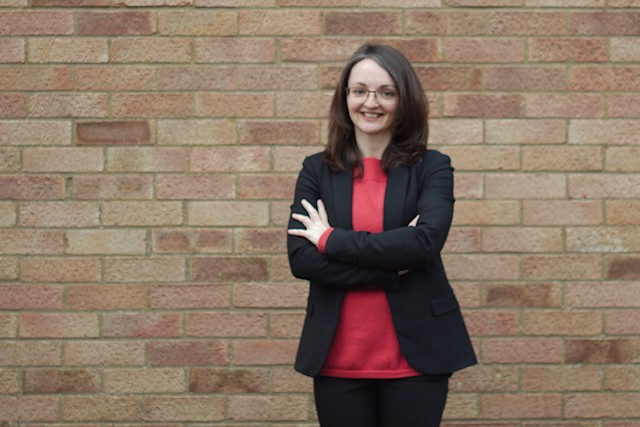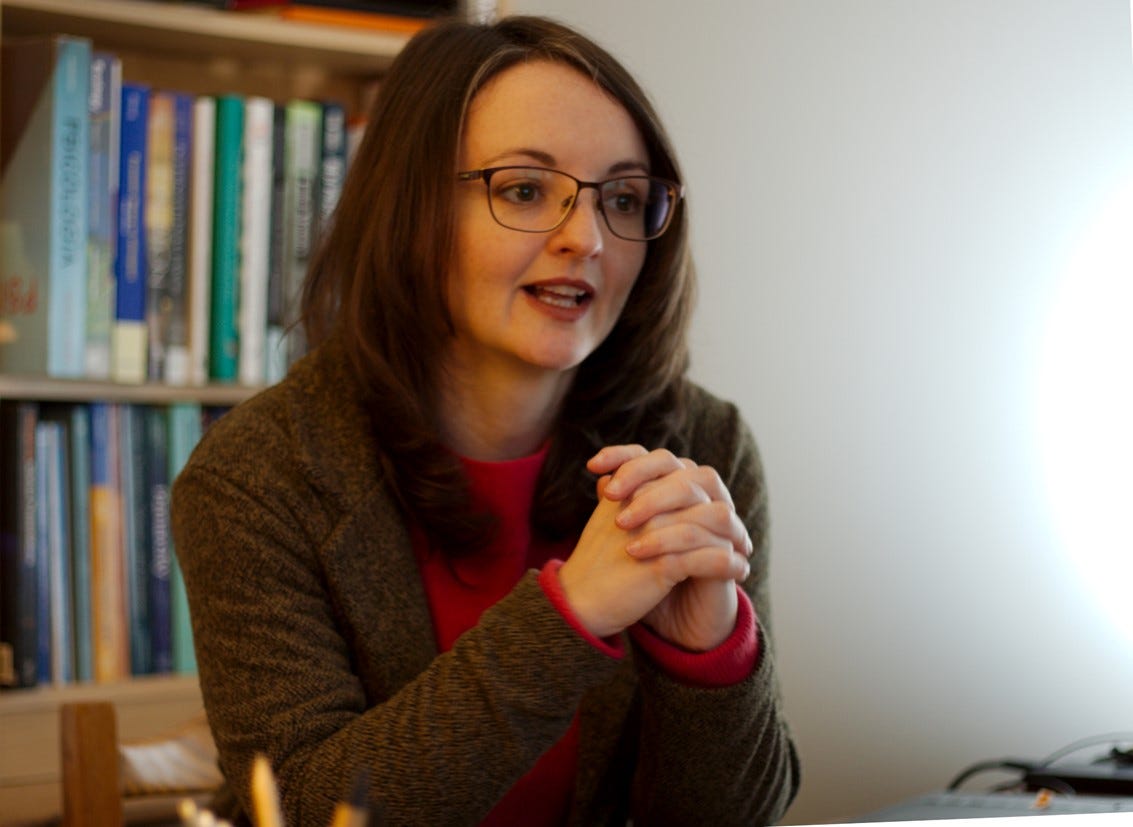‘It’s amazing to realise that there are opportunities for everyone’
Meet Aiora Zabala, a Life Member of Clare Hall, as she discusses her role as Senior Editor of Nature Sustainability and the impact of creativity on her work

I joined Clare Hall in 2010 to pursue a PhD in Land Economy, and I’m now Senior Department Fellow.
I chose the College mainly because of the swimming pool and it being a sister college of St Cross, Oxford, where I obtained an MSc in Environmental Policy. I’ve found Clare Hall to be a friendly and supportive environment that helped me to thrive; I met fantastic people and enjoyed wonderful formal dinners. Prior to arriving in England, I studied Environmental Sciences at the Autonomous University of Barcelona, and I also worked for several years in the private sector on clean technologies.
In my role at Nature Sustainability I cover social sciences, including economics, political science, psychology, etc.
I continue to do research on sustainability governance, particularly focused on policy implementation and understanding diversity of opinions and preferences regarding contentious issues. I’ve published several scientific papers on deforestation, wetland restoration and development, and sustainable commuting, among other themes. Most recently, I’ve written a monthly opinion column and conducted radio collaborations in major outlets in my native language, about ways toward sustainability.
I’ve published work from very early career researchers, who are often more daringly original
I have been interested in communication and public engagement since my early years.
I created the Working Paper series for the Cambridge Centre for Energy and Environment Governance (CEENRG), and my experience leading magazines goes back to my undergraduate studies, and even to newsletters in high and primary schools. I just love sharing knowledge and ideas, and have been good at coordinating large groups of authors. When a colleague shared with me the opportunity to become part of the first editorial team that would launch Nature Sustainability, I felt the excitement right away. So much so that to join this project I turned down two permanent academic offers!
My core work involves reading manuscripts and deciding whether to send them out for peer-review, find reviewers, assess their reports, and so on.
Once we accept a paper, I provide detailed feedback about the text to improve clarity and flow, to make it accessible for a broad interdisciplinary audience, and to make the figures simpler and more effective. The work is varied and we also commission articles, write, do outreach, and stay abreast of what’s published elsewhere.

I love working with incredible scholars from across sustainability research, some of whom were my idols as a student twenty years ago.
Seeing the myriad behaviours from researchers behind the scenes is extremely interesting too, in a sociological sense: amazing professionalism, some (not that many) big egos and unleashed emotions, thought-provoking review reports…every paper is different. Also, more often than many would expect, I’ve published work from very early career researchers, who are often more daringly original. It’s amazing to realise that there are opportunities for everyone.
Studies on sustainability from across the social sciences include descriptions that involve many vulnerable people and ecosystems in transformation.
My role is a small window to what’s going on with the environment globally (bad news, for the most of it), and one needs to deal with the emotions triggered by reading such stories every day, from all over. There is certainly a lot of sustainability research that reports concerning environmental trends and impacts on human and planetary health and make broad recommendations, but unfortunately not so much research in the social sciences analyses solutions in detail, i.e. with tangible, immediate applicability in the real world.
Before joining Nature Research, I’d been teaching in the Land Economy Department and in the wider University.
I stayed in touch as Fellow of C-EENRG, and eventually they called me to help in organising and delivering lectures in environmental economics and policy analysis, for both undergraduate and MPhil students. I find teaching most enjoyable and inspiring. I also supervise a few MPhil dissertations — all on environment and sustainability policy.

I took artistic training very early on in life.
Over the years I kept producing visual outputs with purpose, for example, as an undergraduate in environmental sciences I produced awareness material such as a leaflet for a friend’s initiative with nest boxes and ads for thermal solar technology, and then I took a two-year degree in graphic design. I’ve thought of it as a parallel career throughout, but it isn’t really: it definitely makes a difference in my visual scientific outputs (figures, data visualisation); in the advice I give as an editor; and for communication skills more generally.
I’m uber laid-back.
This is likely stereotypical in my culture of origin, where hierarchies are not that strong and the business standard is to enjoy an amazing meal in an unpretentious place, wearing trainers and a t-shirt with a blazer. You’ll find me most comfortable sitting on a rock and staring at awe-inspiring views of a (semi)natural landscape.
Read the latest Nature Sustainability articles at https://www.nature.com/natsustain/ and learn more about Aiora’s work via her website: https://aiorazabala.net/